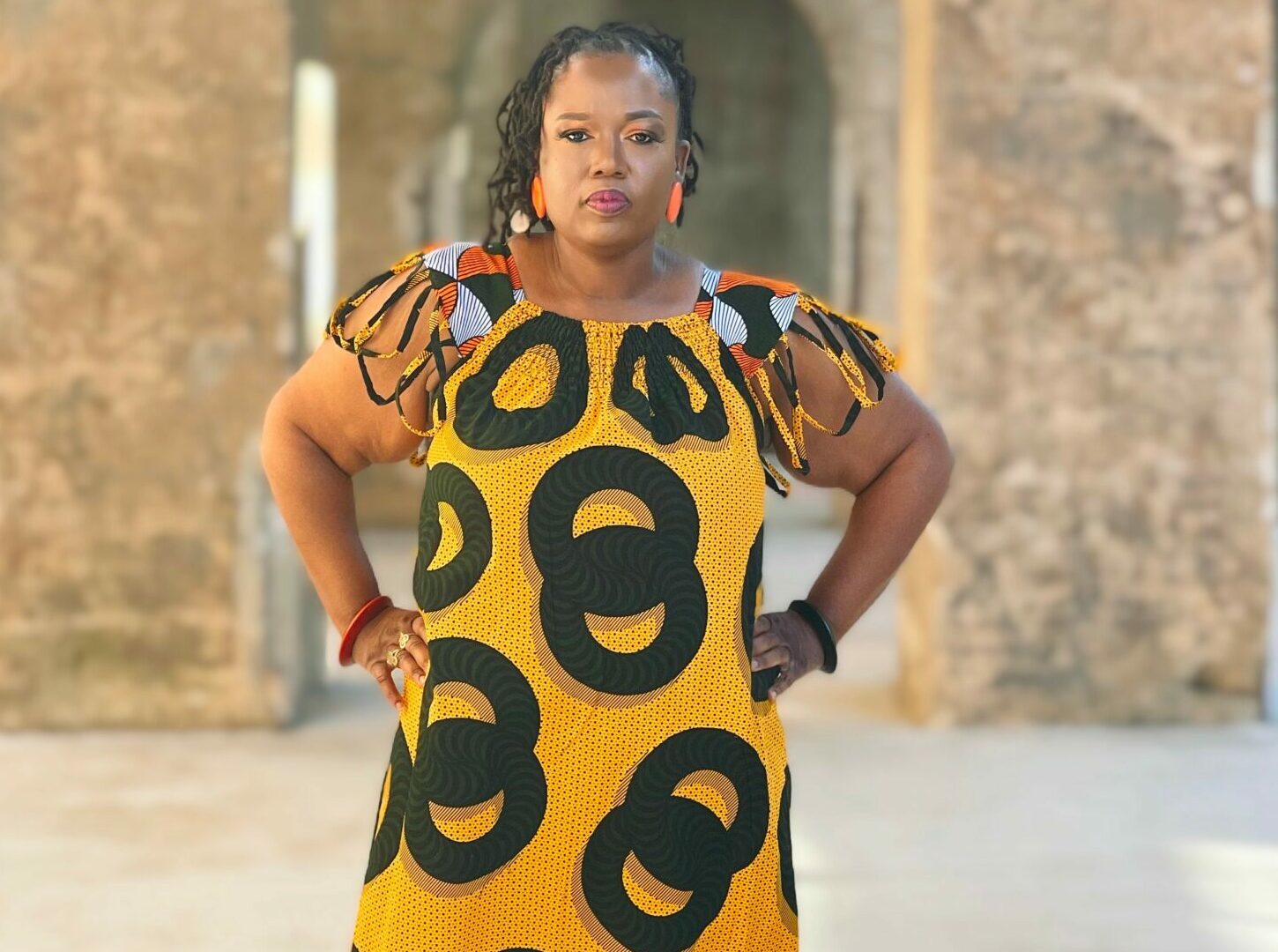
Today we’d like to introduce you to Miranda Jones.
Hi Miranda, it’s an honor to have you on the platform. Thanks for taking the time to share your story with us – to start, maybe you can share some of your backstories with our readers.
Most people say my presence belies my story. I say it’s veneer. Survival. I was born to two wonderfully fractured young Black people in Winston-Salem, NC, and like so many, they were poor and traumatized, but in an expression of love, they made me. Being born in the 80s meant I was born during the height of the crack epidemic, and my mama fell headfirst and I became a casualty by default. Our little apartment in Kimberly Park Boston Projects would serve as one of many dope and cook-up spots while my little world of Winston-Salem seemed to run amuck to my young eyes. I often tell people I never had to see New Jack City of Boyz N the Hood because I lived there. I found a safe haven in my daydreams. Literature, reading, and writing would come later. I was the fat girl who was deeply mesmerized and troubled by Michael Jackson’s We Are the World and wanted to know why no one around me seemed to be paying attention not to world hunger by the issues that plagued the community right around me. I’d be lying if I had said I had any big dreams. I didn’t. I just wanted to wake up from the nightmare of a drug-addicted mother, sexual abuse, violence, homelessness, and poverty. I finally did wake up in the arms of my paternal grandmother.
I am from the Mind is a Terrible Thing to Waste and the then-praised but now tarnished The Cosby Show and Different World era, where a four-year college education was promoted as a Black girl’s only way out of poverty and hopelessness. I never considered myself “smart” whatever that means. I didn’t earn my first A until middle school, and I liked it, so I kind of figured if I wanted to go to college, I should probably procure more of those. I did and ended up at UNCG, and it was a wonderful experience for me. Even though I was just 30 minutes away, and it was no Hillman nor HBCU, it was incredibly healing for me. Still, I didn’t realize I was in survival mode, and I didn’t quite know what I wanted to do or who I wanted to be career-wise. So, I graduated and spent much of my twenties on a wild ride of endless jobs and in unrelenting poverty until I hit rock bottom and was renting a room in a boarding house with no transportation, the closest I could get lest I end up in a homeless shelter. On a whim, I applied to a federally funded graduate program Project ENRICH, at UNCG and got accepted. It was nothing short of a miracle. I got accepted, and through so many bumps in the road, I found that I had a knack for teaching, but I didn’t have a knack for keeping my mouth closed about the inequities in education, so I became a teacher activist for good, bad and worst depending on who you ask.
Can you talk to us a bit about the challenges and lessons you’ve learned along the way? Looking back, would you say it’s been easy or smooth in retrospect?
The lines from the great poet Langston Hughes’ poem Mother to Son come to me-Life for me ain’t been no crystal stair/It’s had tacks in it/And splinters/And boards torn up/And places with no carpet on the floor—Bare/But all the time/I’se been a-climbin’ on,/And reachin’ landin’s,/And turnin’ corners,/And sometimes goin’ in the dark/Where there ain’t been no light. I still wake up and pinch myself. I can’t believe I am still here. Gun to my head at seven years old. Long time diabetic and multiple surgeries and struggles, both personal and professional, but I am still here by God’s grace. The biggest struggle was me learning to love and accept myself, which I’ve gained through years of counseling. I am still working through accepting parts of myself that I don’t understand, but I am getting there. A lot of unlearning and ridding myself of shame. Dogma. On the professional side, as an educator, I continue to manage to get into what John Lewis called “good trouble.” I am often called a fighter, and that makes me laugh. I have been the subject of intense scrutiny and investigation. A former white principal called me a “renegade” and a “rogue.” It hurt immensely. I had merely sent an email to the bigwigs at Central Office because I wanted them to do something about the school’s segregation. I knew nothing of organizational hierarchy and paid little mind to the chain of command. I just wanted change and results. I transferred to the alternative school where I thought I could really do some good work. I would learn that not everyone is in education because they love Black children and that we all don’t have the same ideologies, perspectives, and viewpoint. So, there I went, emailing and firing off with opinions that it seemed few people wanted to hear. An elder who worked closely in the Executive Cabinet gave me what felt like a forewarning when she said, “Miranda go in your classroom, close the door and teach.” I was crushed. I had naively assumed the professional world, the world of educators with apples, would be better than the world I’d come from. I was wrong. Even still, I couldn’t keep quiet. I would unintentionally make waves with my viewpoints on an over-100-year-old Confederate statue, face intense backlash, and become the subject of a smear campaign in 2019. My whole career almost went up in smoke, but I kept my wits about me, and I had a lot of help from the community, which felt good. I don’t think it was always necessarily agreement or that everyone cared about a statue, but I think they saw the injustice of the attacks on my life and my career. For that, I am forever grateful. Will I ever be able to be quiet? Probably not.
Appreciate you sharing that. What else should we know about what you do?
I am a high school English teacher, and as crazy as it sounds these days, I love what I do! I teach English IIHN, which focuses on multicultural literature. I am Afrocentric, so I really emphasize African and African-American writers like Chinua Achebe) all of my scholars must read Things Fall Apart if they are in my Honors courses) and Chimamanda Adiche. In my other courses, they must read Toni Morrison’s Beloved, which is challenging but so worth it. It was challenging even more me as their teacher. I am known for being a touch teacher who is pushy, loud, and really off the cuff. I have been teaching now going on 11 years. I spent the first part of my career as a Special Education Teacher working in Inclusion English classes, supporting students with disabilities. It feels good to now be in the proverbial driver’s seat. After all, I was an English major in college. I am most proud of having my students score well on their district and state exams. I am also proud of teaching my former Speech & Debate students how to advocate for change and get better school lunches. Even though it angered my principal that I taught the students the power of civic engagements and Op-Eds, it created change, and I hope made them feel a sense of empowerment. I firmly believe that when you do right by children, no harm will come to you. Even though the class was taken from me, I know that I showed Black and Brown children and even poor white children that they have a voice and they are worthy. What sets me apart is that I am not afraid to confront power even if it means I lose. I am not afraid to speak my mind. I am not afraid to be Afrocentric in a Eurocentric educational system that attempts to whitewash everything, especially the curriculum. I have been poor before, so I don’t work in fear. I teach unapologetically and without fear.
What quality or characteristic do you feel is most important to your success?
The characteristic most important to my success is my resilience. Make no mistake, for me; resilience is a gift from God. A former counselor called me “an overcomer.” This is not to suggest that there haven’t been things I haven’t quit, but more that I always find a way to come back to whatever really matters to me. I often remind the activist group I lead, Hate Out of Winston, that it was a whole two years that I had spoken out about the former Confederate statue in Winston-Salem before anything ever happened by way of a protest. I was just a teacher who went to the city council and spoke my mind. There was one article and some hate mail sent to my school. I figured no one cared but I wasn’t going to stop thinking about it and maybe emailing here and there. Then boom January 2019 hits, and there’s an article about the statue being vandalized. I happened to make a post asking folks what they thought; hate Out of Winston was born, the statue came down, and though we really came together on a single issue, when everyone else wanted to dismantle that group and page, I decided I would somehow figure out how to keep it going. Despite having no knowledge of community organizing or politics, I just keep going. The words of ancestor Fannie Lou Hamer embody this resilience, “If I fall, I’ll fall five feet four inches forward in the fight for freedom. I’m not backing off.” –
Contact Info:
- Website: www.hateoutofws.org
- Instagram: hateoutofwinston
- Facebook: Hate Out of Winston
- Twitter: @out_winston
- Other: https://linktr.ee/sismiranda
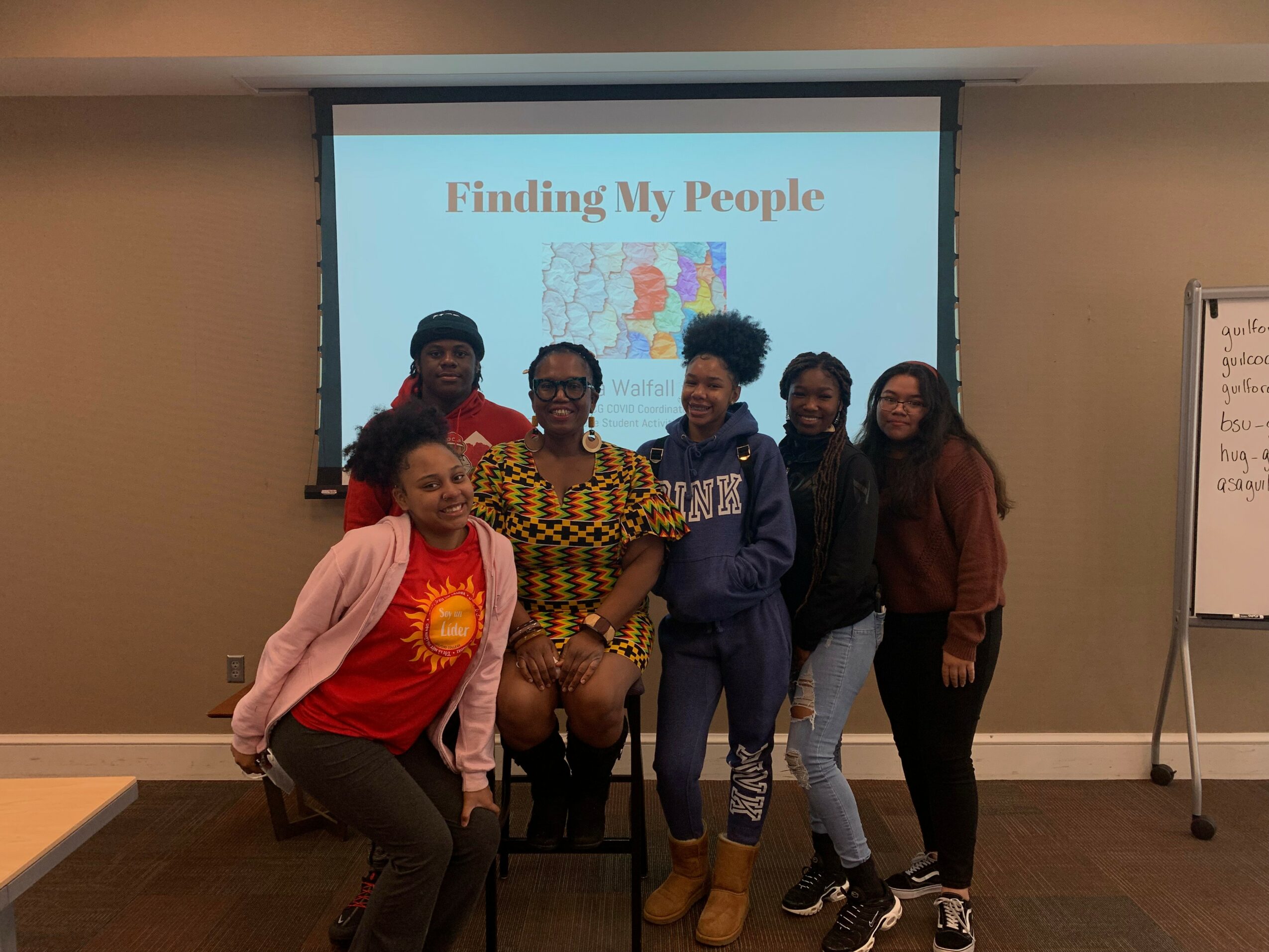
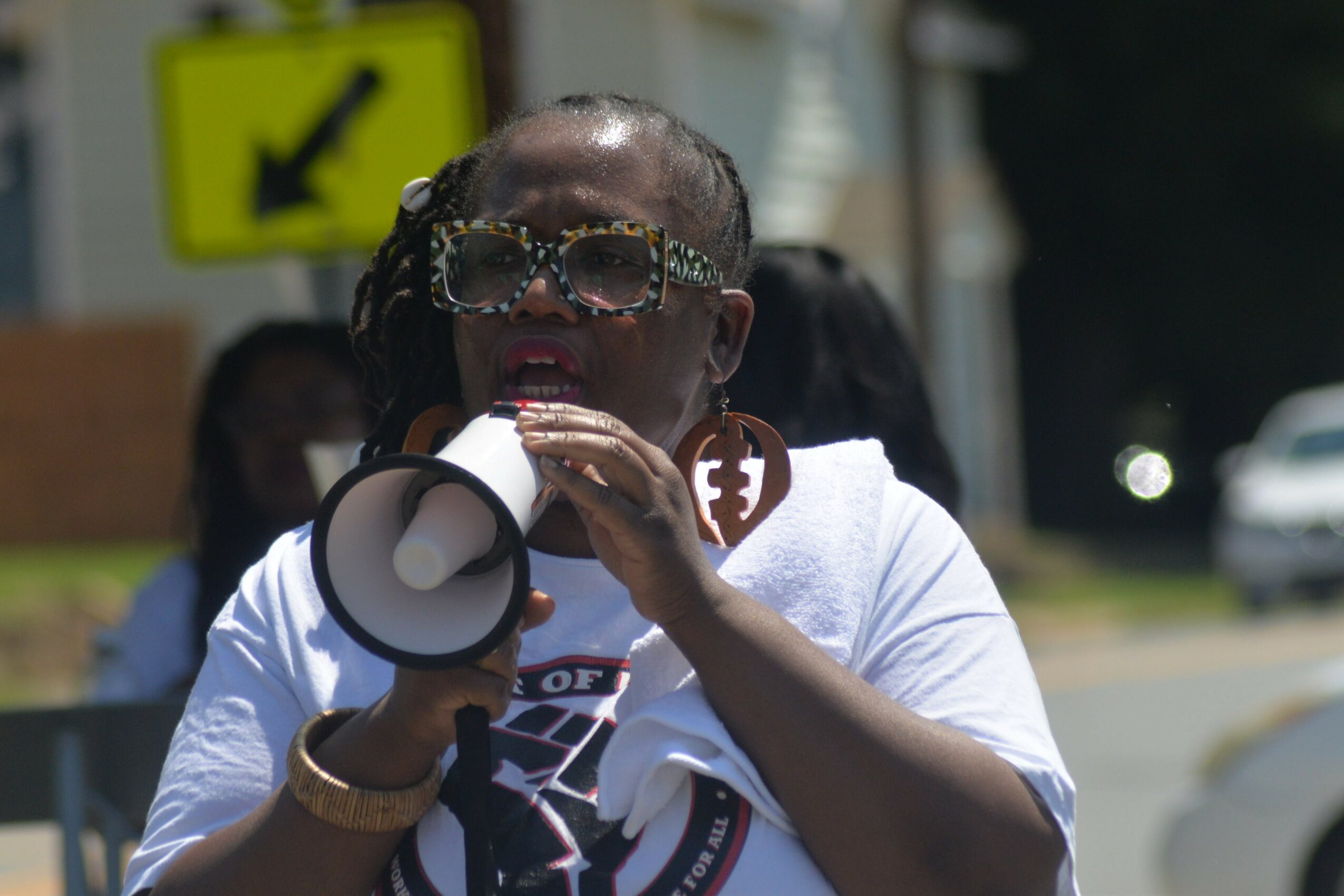
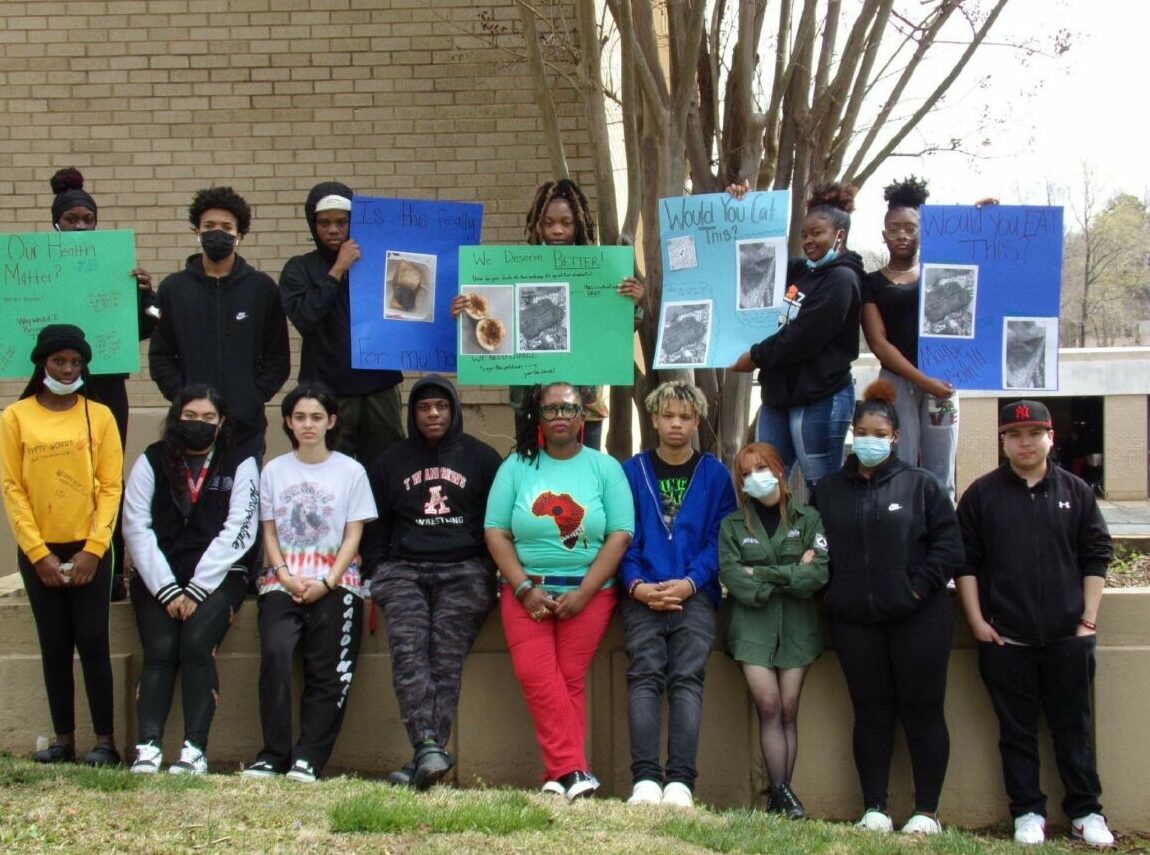
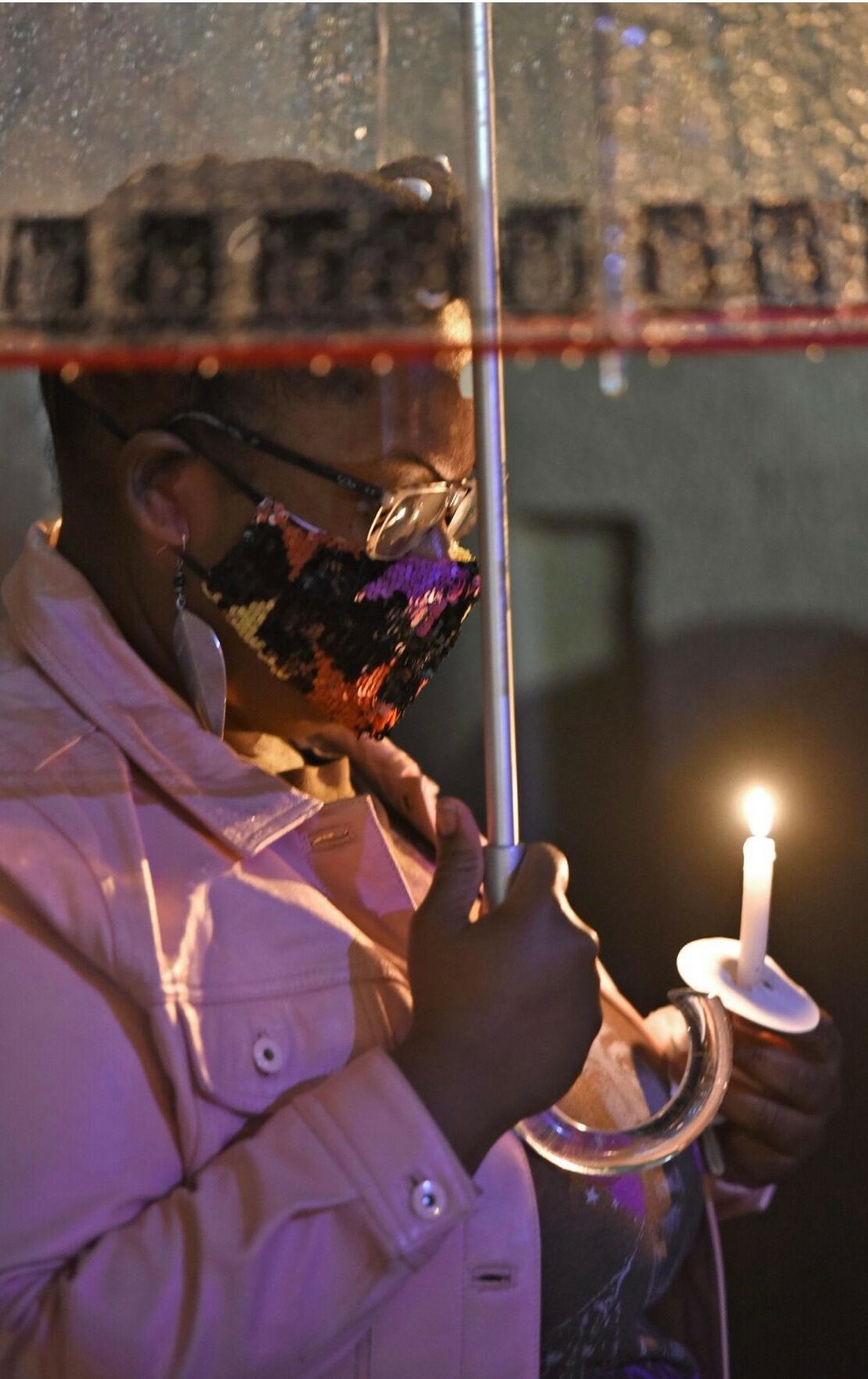
Image Credits
India Reaves Photography
Wil P.
Winston Salem Journal

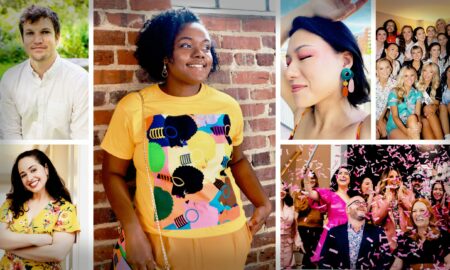










La Shunda Booker
June 14, 2023 at 9:20 pm
The world is truly blessed to have Miranda Jones on out side. She is a true testimony of Resilience Fight and Change